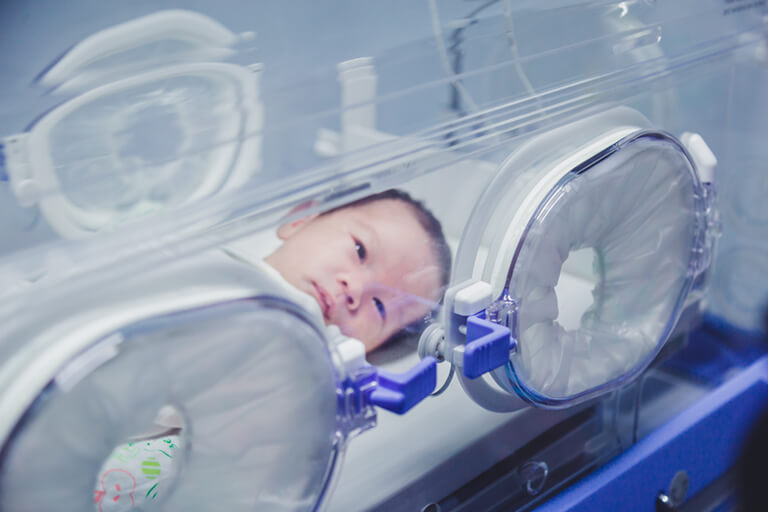Hospital Neonatal Intensive Care Units (NICUs) treat preterm or seriously unwell newborns. Nursery care cannot meet NICU infants’ needs. These therapies may involve intravenous feeding for newborns who cannot feed, breathing support for undeveloped lungs, or drugs for various health issues. NICU babies are stabilized and strengthened until discharge.
The NICU’s skilled team caters to delicate newborns 24/7. Nurses, neonatologists, and respiratory therapists treat patients together. Ventilators and incubators are baby-specific. Information, emotional support, and engagement in newborn care are given to NICU families.
Reasons for NICU Admission
From being delivered prematurely to experiencing problems during birth or a congenital ailment, there are several reasons a newborn can need NICU care. Typical causes include early birth—before 37 weeks of gestation.
- Early birth (before 37 weeks).
- Low birth weight (under 5.5 pounds).
- Breathing issues or RDS.
- Infections or sepsis.
- Jaundice requiring phototherapy.
- Congenital anomalies or heart defects.
Every infant has different demands, hence the NICU staff customizes treatment for each one of them.
The NICU Environment
First-time visitors to the NICU often find their encounter to be somewhat intense. The newborns are housed in incubators or radiant warmers, different monitors showing vital signs, and medical tools meant to offer necessary assistance. With the sound of sirens, vents, and nurses working quickly, the surroundings may appear scary.
Every piece of tools has a distinct use. For example, while the sensors watch heart rate, oxygen levels, and breathing, the incubator keeps your baby warm. Although at first this environment may appear intimidating, every element is in place to guarantee the protection and well-being of your infant.
Your Role as a Parent
Although the medical staff offers specific treatment, your baby’s recovery depends on you. Understanding the significant influence of bonding on the baby’s health, many NICUs promote parent engagement.
-
Skin-to-Skin Contact
Held against your chest, this is known as kangaroo care as well. Skin-to-skin contact can even help your baby grow and develop, control their temperature, and foster connection.
-
Feeding and Diaper Changes
Your baby’s health will determine whether you can help with feeding—from formula to expressed milk to nursing. Often guiding parents on changing diapers or other care responsibilities, nurses help to create a sense of engagement and connection.
-
Emotional Support
Your infant may get great calm from your voice, touch, and presence. Comfort and familiarity might come from reading, singing, or just gentle conversation.
Coping with Emotions
Emotions ranging from dread to worry, hope to tiredness can all be experienced throughout the NICU journey. Although feeling overwhelmed is common, there are strategies to help.
- Ask Questions: Knowing the state and care schedule of your infant can help you to relax. The NICU team is available to keep you updated and address any questions.
- Seek Support: Making connections with other NICU parents or support organizations could offer solace and common knowledge.
- Take Care of Yourself: Rest, eat sensibly, and ask for breaks as required. Taking care of yourself guarantees your availability for your child.
Celebrating Milestones
Although the NICU experience might be demanding, it also presents many happy and hopeful events. Every stride forward—that of your kid breathing on their own or consuming their first feed—should spark jubilation. These benchmarks, no matter how little they seem, mark major turning points in the path of your child.
Preparing for Discharge
Although leaving the NICU is a historic event, it can also cause fresh concerns as you start to look after your infant at home. The NICU staff will make sure you feel competent in feeding, giving drugs, and spotting symptoms of concern so you are ready for release. Many hospitals also provide tools and follow-up treatment to help your infant thrive and develop going forward.
Final Thoughts
Though unanticipated, the NICU experience is evidence of the fortitude of both infants and their families. Most NICU graduates go on to flourish and attain their best with the correct care, help, and direction. Remember, you are not traveling this road alone; rely on the medical staff, loved ones, and support systems to negotiate this demanding yet optimistic phase of motherhood.




